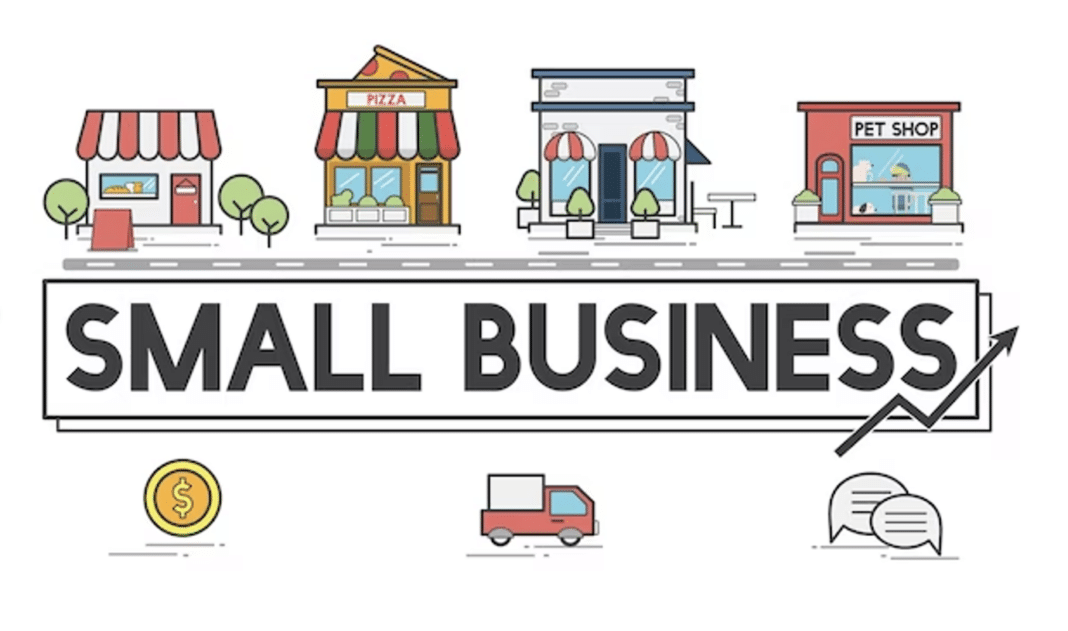When small business owners seek financial support to fuel their growth and expansion, they often face a critical decision: Should they opt for a small business loan installment or revolving credit? Both options provide valuable funding opportunities. However, understanding the differences between them is crucial in making an informed choice that aligns with the unique needs and goals of the business.
In this article, we will explore the key features and benefits of each financing method. We’ll shed light on the distinctions between small business loan installment or revolving and revolving credit, allowing you to grasp their nuances.
Business Installment Loans for Bad Credit
Let’s explore the considerations for businesses with poor credit who seek loans. Installment loans for bad credit don’t have a specific spending requirement, so people can use this financing option to meet the needs of their business. These types of loans provide individuals with less-than-ideal credit scores an opportunity to secure funds and enhance their financial situation through structured repayment plans.
By the end of this article, you will gain a comprehensive understanding of these financial tools. This knowledge will empower you to make confident decisions regarding your small business’s future.
Business Installment Loans vs. Revolving Credit
Small business loans, a traditional form of borrowing, involve lenders providing a lump sum amount to businesses. The borrowed amount must be repaid over a fixed period and typically used for specific purposes like expanding operations, purchasing equipment, or covering working capital needs.
The Concept of Small Business Loan
A business installment loan is a specific type of small business loan with a predetermined repayment plan. Once approved, the borrower receives the full loan amount and then proceeds to make regular payments called installments throughout the specified loan period. Each installment encompasses both principal and interest, ultimately resulting in complete repayment by the end of the agreed term.
Key features of installment loans:
- A fixed repayment schedule is a characteristic of installment loans. These types of loans require borrowers to make equal monthly payments until the full loan amount is repaid. This predictable payment structure makes it more convenient for businesses to budget and plan their repayments efficiently.
- In the realm of lending, predetermined interest is a common concept. This refers to an interest rate that remains fixed from the moment a loan is approved, ensuring that the cost of borrowing stays consistent throughout its duration.
- In a neutral tone, businesses are provided with the entire loan amount upfront. This arrangement proves particularly beneficial for endeavors that involve specific and one-time expenses.
Small Business Loans Installment
A small business loan installment represents a tailored form of credit exclusively designed to fulfill the unique financial requirements of small businesses. These loans typically offer more flexible terms and lower interest rates than alternative credit options.
Revolving Credit Explained
Revolving credit, in contrast, offers businesses a more flexible financing option. It grants them a credit limit that can be accessed as needed, making it distinct from installment loans.
How Revolving Credit Works?
Unlike traditional loans, revolving line of credit offers borrowers the flexibility to access funds whenever they need them. This makes it a versatile financial tool. Borrowers have the choice to make minimum monthly payments based on their outstanding balance and can repay either the full amount or any portion of it at any time.
- The online lender sets a maximum credit limit for the business in revolving credit. This allows the borrower to access funds up to that limit whenever needed.
- The repayment process offers businesses flexibility. Instead of being tied to fixed installments, they have the option to make minimum monthly payments based on their outstanding balance. Additionally, they can repay the full amount or any portion of it at their convenience.
- Continuous use is possible as long as the borrower remains within the credit limit and makes timely payments. This allows them to access the revolving line of credit facility indefinitely.
Distinctive features of a revolving line of credit:
- Flexibility is a key advantage of revolving credit for businesses. It grants them the freedom to borrow exactly what they require, ensuring optimal control over their financial situation. This attribute empowers organizations to manage their finances on their own terms and adapt as
- Variable interest is a beneficial feature. Businesses that effectively manage their credit can potentially enjoy lower interest costs since interest is only charged on the borrowed amount rather than the entire credit limit.
Examples of Revolving Credit Loan and Business Installment Loan?
When considering business financing options, it becomes crucial to comprehend the disparities between revolving lines of credit and installment loans. Both function as valuable means of accessing funds; however, their structures and repayment methods differ significantly.
Revolving Credit offers a flexible funding solution
Revolving line of credit grants businesses a predetermined credit limit, providing them with continuous access to funds. This arrangement enables borrowers to withdraw funds as needed, up to the designated credit limit. It is particularly suitable for enterprises with fluctuating financial requirements over time.
Examples of revolving line of credit:
- In business financing, a useful tool to consider is business lines of credit. This financial arrangement involves a lender granting a specific amount of credit to the business. The borrower has the flexibility to access funds whenever needed, and interest is only charged on the amount actually borrowed. Such a revolving line of credit proves beneficial for managing short-term cash flow variations while also covering unforeseen expenses.
- A business credit card holds a prominent role in the world of finance, as individuals and businesses widely utilize it. These versatile instruments offer revolving credit to cardholders, allowing them to freely make purchases or obtain cash advances within their specified credit limits. To maintain good standing, one must fulfill minimum monthly payments while any remaining credit balance can be transferred into subsequent billing cycles.
- A business can establish a secure revolving credit line by providing collateral such as assets or property. This collateral assures lenders and allows them to offer higher credit limits with lower interest rates. By leveraging their assets, businesses gain the ability to confidently manage their cash flow, seize growth opportunities, and address unexpected experiences. Ultimately, this strengthens their financial position and stability.
- An unsecured business line of credit is a type of funding that doesn’t require collateral. Unlike secured credit, which relies on assets as security, approval for an unsecured credit line depends on the creditworthiness of the business and its owners. Although it may have a lower barrier to acceptance, an unsecured credit line generally comes with smaller limits and higher interest rates. However, this option provides businesses with flexibility and quick access to funds without risking valuable assets if they cannot repay the borrowed amount.
Business Installment Loans Structured Repayment for Specific Projects
Installment loans, unlike revolving credit, offer businesses a lump sum upfront. These loans are ideal for projects with defined experiences since they come with a fixed repayment schedule.
Examples of installment loans:
- Term loans are a commonly used type of installment loan in the business world. They serve various purposes, including purchasing property or equipment and financing expansion plans. When a business takes out a term loan, they receive a specific amount of money, which they repay over a predetermined period through fixed monthly payments.
- Installment loans can be obtained by individuals with bad credit. Additionally, businesses with less-than-perfect credit can also access these types of loans. Although the interest rates on such loans may be higher, they provide an opportunity to enhance one’s creditworthiness through consistent and timely payments.
Comparing Business Installment Loans and Revolving Credit
By comprehending the distinctive benefits and constraints of each loan type, borrowers can optimize their financial strategies and effectively achieve their goals.
- In terms of repayment structure, installment loans involve regular fixed monthly payments, whereas revolving credit provides more flexibility by allowing for minimum payments.
- Interest rates differ between installment loans and revolving credit. Installment loans typically have fixed interest rates, while revolving credit may feature variable rates that depend on the outstanding balance.
Which Type of Small Business Loan is Better?
Both types of loans serve distinct purposes, making it challenging to definitively deem one as inherently superior to the other.
The decision between revolving credit and installment loans hinges on the unique circumstances faced by each business. This enables entrepreneurs to evaluate which option better aligns with their specific needs.
In general, when considering loans for a business, certain guidelines can assist in determining the most suitable type of loan. This is true even without diving into specific loan terms.
When Business Installment Loans Are Better
When businesses encounter certain conditions that call for a more structured borrowing approach, installment loans become the preferred choice. By understanding the situations in which these loans excel, entrepreneurs can make informed decisions to effectively fuel their business growth.
Specific Project Financing
Installment loans offer a perfect solution for small businesses seeking funding for specific projects with predetermined experiences. Whether it involves property acquisition, equipment procurement, or expansion financing, installment loans provide an upfront lump sum amount, ensuring the availability of necessary funds to fulfill project requirements.
Predictable Repayment Structure
Installment loans are an excellent choice for businesses that value stable and predictable cash flow management. Business owners can effortlessly plan their finances with fixed monthly payments, avoiding any concerns about fluctuating interest rates or minimum payment obligations.
Lower Interest Rates
Installment loans often come with fixed interest rates. This can be advantageous when compared to the potentially variable interest rate of revolving loans. Businesses have the opportunity to secure a lower interest rate at the time of loan approval, providing them with financial stability and long-term savings.
When Revolving Loans Are Better
Revolving loans come to the forefront as the optimal choice under certain circumstances, offering businesses the flexibility and adaptability they need. By discerning the scenarios where a revolving loan shines, entrepreneurs can make informed decisions to leverage these benefits for their business endeavors.
Flexible Funding Requirements
A revolving loan offers unmatched flexibility for businesses with unpredictable or changing financing needs. Whether it’s managing seasonal fluctuations, covering short-term expenses, or seizing new opportunities, a revolving loan provides ongoing access to funds within a predetermined revolving credit limit.
Minimum Payments
Revolving loans typically require businesses to set monthly payments based on the outstanding balance. This can benefit companies during lean months when they lack sufficient funds for larger fixed installments. By providing a minimum payment option, businesses have breathing room to manage their cash flow effectively.
Variable Interest Rates
In an environment where interest rates are expected to decrease, borrowers may find revolving loans with variable interest rates advantageous. This is because as rates decline, borrowers can benefit from lower interest costs and potentially achieve overall savings when compared to fixed-rate installment loans.
Comparing Business Installment Loans and Revolving Loans
When considering the choice between installment loans and revolving loans, businesses must thoroughly assess their unique financing needs. If a company requires funding for specific projects with fixed experiences and desires stable repayments, choosing installment loans would be more advantageous. On the other hand, businesses seeking ongoing access to funds, flexible repayments, and variable interest rates may find revolving loans to be a better fit.



